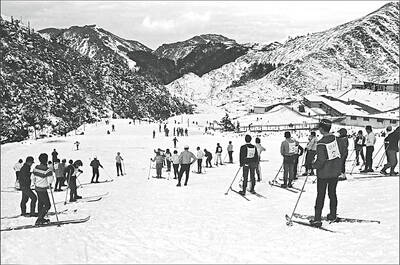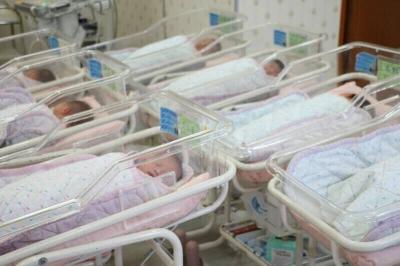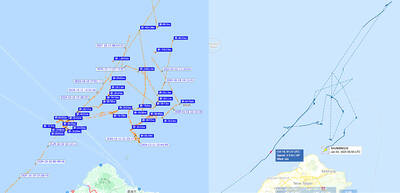Taiwan is to loosen its COVID-19 prevention protocols for migrant workers entering the nation, the Ministry of Labor said yesterday after rights groups rallied in Taipei last month to demand that the government overturn what they called discriminatory measures.
From Wednesday next week, incoming migrant workers would still need to reside in accommodation that is one person per bedrooms during their seven-day self-health disease prevention period, but it would not be mandatory for the rooms to have toilets if those staying in the facility clean and disinfect shared bathrooms and toilets after each use.
Current border regulations for migrant workers require them to sleep in one-person bedrooms that have their own toilet during the self-health disease prevention period or stay in a quarantine hotel.
Under the planned eased rules, the address of where newly arrived migrant workers spend their self-health disease prevention period would no longer need to be uploaded to the ministry’s database, and does not need to be approved by the local government, the Workforce Development Agency said.
Furthermore, migrant workers would only need to self-test for COVID-19 after arrival if they have symptoms and test results would not need to be uploaded, it said.
However, as migrant caretakers and domestic helpers are often in contact with elderly people, young children, those with immunodeficiency disorders and others at higher risk from COVID-19 infection, employers are recommended to assist such workers in conducting self-tests before they start work each day during their self-health disease prevention period, it said.
The planned loosening of protocols has been approved because the COVID-19 situation is slowing down and to meet demand for domestic employers, the Workforce Development Agency said.
The announcement came after dozens of migrant workers led by the Migrants’ Empowerment Network in Taiwan and the Domestic Caretakers Union Taoyuan on Feb. 20 protested outside the Executive Yuan in Taipei, urging the government to end complicated border regulations that they said targeted blue-collar migrant workers.
The two groups said that the regulations were discriminatory and did not reflect the contribution made by migrant workers to Taiwan through their hard work.
The regulations have also resulted in problems for some migrant workers, they said.
Ministry data showed that 722,622 migrant workers were in Taiwan as of the end of January.

DEEPER REVIEW: After receiving 19 hospital reports of suspected food poisoning, the Taipei Department of Health applied for an epidemiological investigation A buffet restaurant in Taipei’s Xinyi District (信義) is to be fined NT$3 million (US$91,233) after it remained opened despite an order to suspend operations following reports that 32 people had been treated for suspected food poisoning, the Taipei Department of Health said yesterday. The health department said it on Tuesday received reports from hospitals of people who had suspected food poisoning symptoms, including nausea, vomiting, stomach pain and diarrhea, after they ate at an INPARADISE (饗饗) branch in Breeze Xinyi on Sunday and Monday. As more than six people who ate at the restaurant sought medical treatment, the department ordered the

A strong continental cold air mass and abundant moisture bringing snow to mountains 3,000m and higher over the past few days are a reminder that more than 60 years ago Taiwan had an outdoor ski resort that gradually disappeared in part due to climate change. On Oct. 24, 2021, the National Development Council posted a series of photographs on Facebook recounting the days when Taiwan had a ski resort on Hehuanshan (合歡山) in Nantou County. More than 60 years ago, when developing a branch of the Central Cross-Island Highway, the government discovered that Hehuanshan, with an elevation of more than 3,100m,

Taiwan’s population last year shrank further and births continued to decline to a yearly low, the Ministry of the Interior announced today. The ministry published the 2024 population demographics statistics, highlighting record lows in births and bringing attention to Taiwan’s aging population. The nation’s population last year stood at 23,400,220, a decrease of 20,222 individuals compared to 2023. Last year, there were 134,856 births, representing a crude birth rate of 5.76 per 1,000 people, a slight decline from 2023’s 135,571 births and 5.81 crude birth rate. This decrease of 715 births resulted in a new record low per the ministry’s data. Since 2016, which saw

SECURITY: To protect the nation’s Internet cables, the navy should use buoys marking waters within 50m of them as a restricted zone, a former navy squadron commander said A Chinese cargo ship repeatedly intruded into Taiwan’s contiguous and sovereign waters for three months before allegedly damaging an undersea Internet cable off Kaohsiung, a Liberty Times (sister paper of the Taipei Times) investigation revealed. Using publicly available information, the Liberty Times was able to reconstruct the Shunxing-39’s movements near Taiwan since Double Ten National Day last year. Taiwanese officials did not respond to the freighter’s intrusions until Friday last week, when the ship, registered in Cameroon and Tanzania, turned off its automatic identification system shortly before damage was inflicted to a key cable linking Taiwan to the rest of